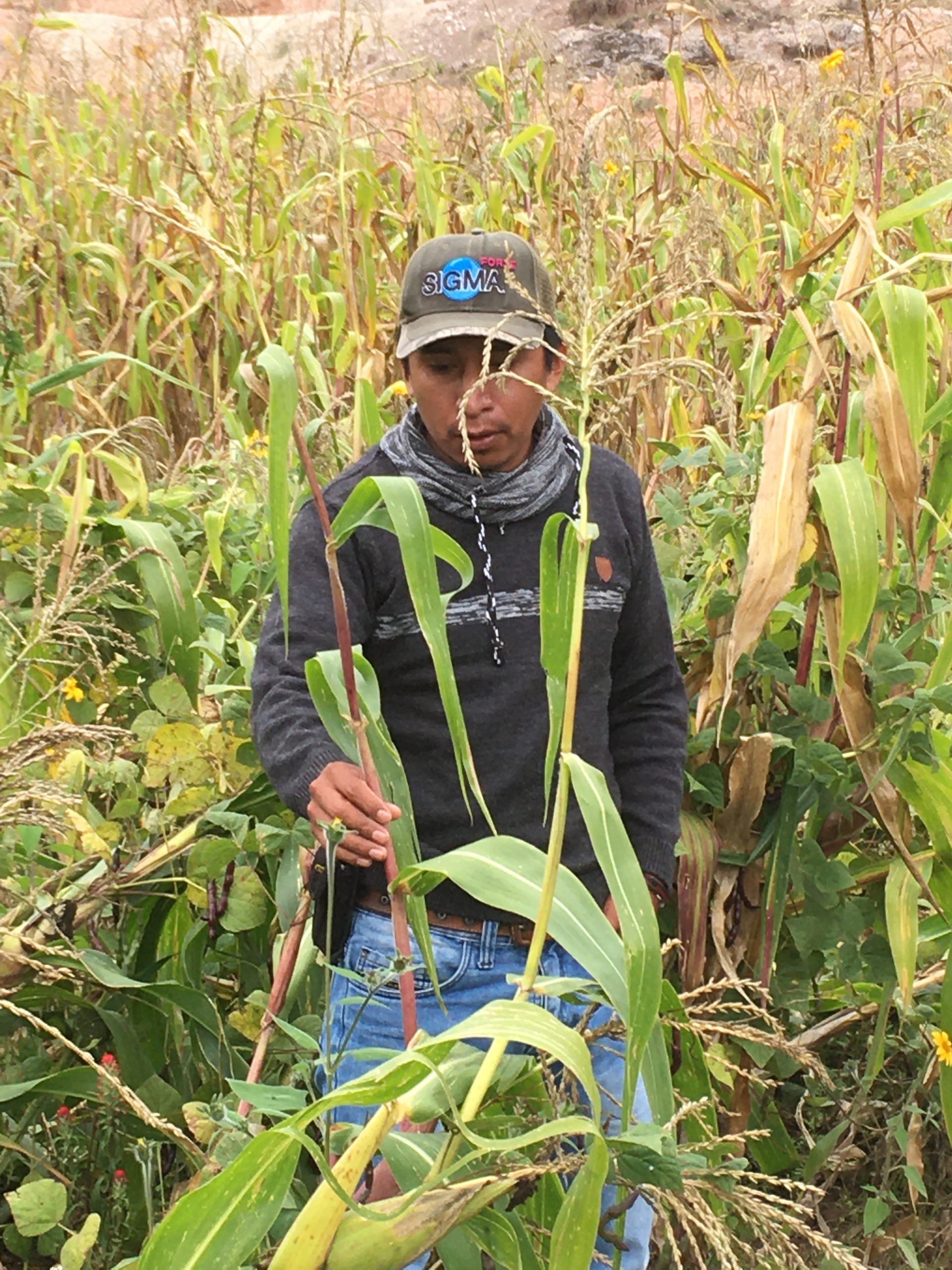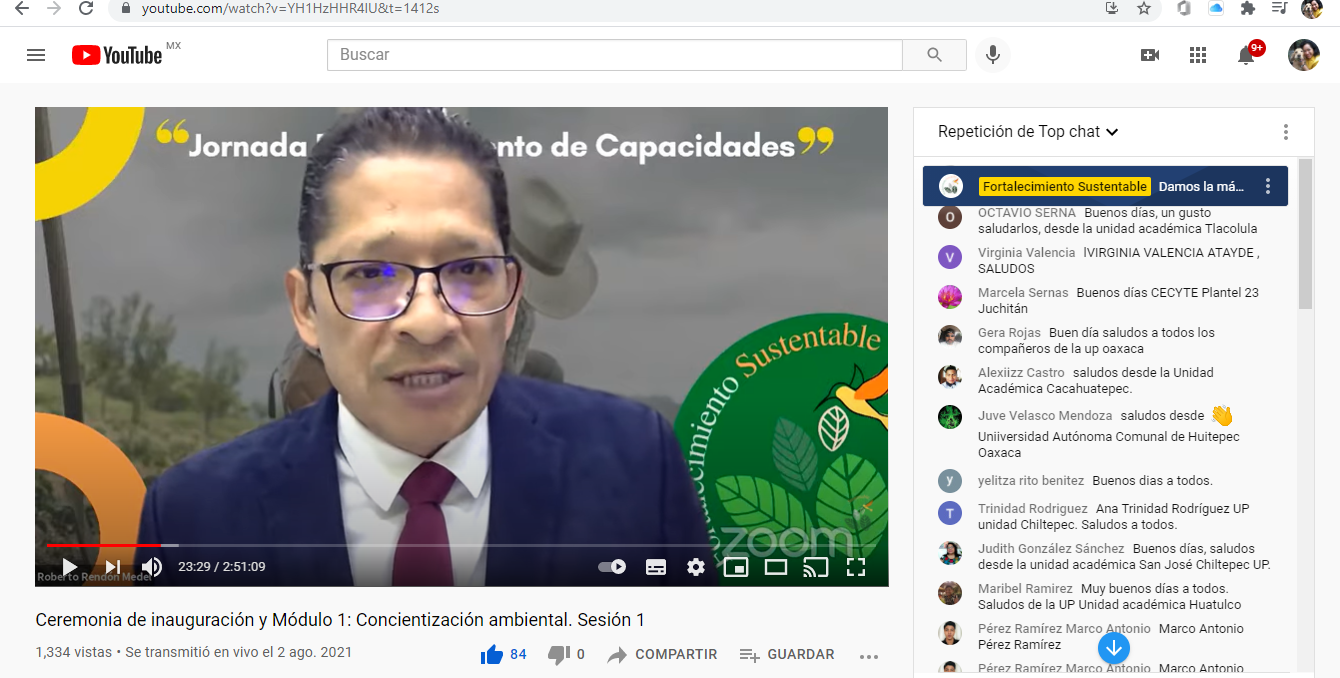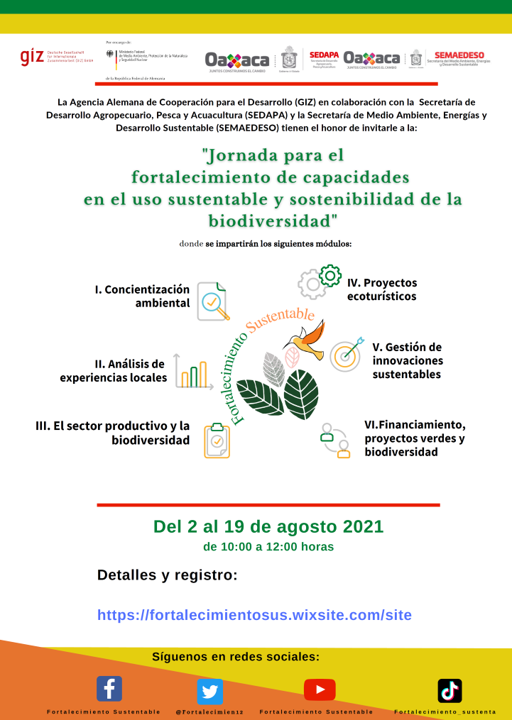As part of the Mainstreaming Biodiversity into the Mexican Agricultural Sector Project (IKI-IBA), the Deutsche Gesellschaft für Internationale Zusammenarbeit (GIZ) GmbH, together with the Ministry of Agricultural, Fishing, and Aquaculture Development (SEDAPA) and the Ministry of the Environment, Energy, and Sustainable Development (SEMAEDESO), developed a participative process with 124 stakeholders, who are involved in the state of Oaxaca’s agri-food system. Their goal was to create the Strategy for Strengthening Technical Skills for Sustainability in the Agricultural and Forestry Sectors in the State of Oaxaca. The strategy was published on March 20, 2021 with the aim of providing the state’s government with a mechanism for technical skill development for sustainable biodiversity management, integrating sustainability criteria in the design and operation of agricultural projects.

As part of the strategy, the Seminar for Sustainable Use and Sustainable Biodiversity Skill Strengthening was held from August 2nd to the 19th, 2021. The seminar is made up of 6 modules that aim to strengthen the skills of academics, students, extensionists, producer organizations, and public servants in the following areas:
- Environmental Awareness
- Ecotourism Projects
III. Analysis of Local Experiences
- Sustainable Innovations
- The Productive Sector and Biodiversity
- Financing for Green Projects
The seminar has been enthusiastically received by the actors involved, as seen by the more than 600 participants registered in the six modules (32% academics, 31% high school and university students, 15% extensionists, 15% producers, 7% others), more than 976 views of the opening ceremony of Module 1. Environmental Awareness on the YouTube channel YouTube – Fortalecimiento Sustentable (Sustainable Strengthening), more than 960 visitors from Mexico and other countries to the website, and more than 200 direct interactions on the Mentimeter tool in the live session.

By undertaking these actions, the project helps to institutionalize these topics in more than 15 local and national institutions, integrating issues relating to the incorporation of sustainable use of biodiversity in production systems.

